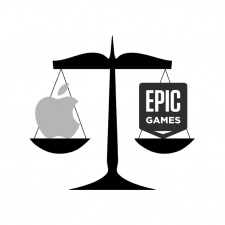Updated: Following this ruling, there's been a significant debate on exactly what the actual conclusion is in terms of App Store and payments.
The most conservative take from Foss Patents, is Apple just has to make users aware of pricing on different platforms, not actually allow third party payments from within the App Store.
Either way Epic is appealing and the injunction isn't due to come into force for three months, so the story still has some ways to run.
Apple has received a permanent injunction from a Californian court, in terms of the long-running Apple vs Epic Games legal battle in the US.
As reported by The Verge, Apple must now allow developers to implement other forms of in-app purchases outside of those offered in the App Store.
Under the injunction, Apple is "permanently restrained" from forbidding developers from including external links that direct consumers to third-party payments. Additionally, Apple must permit communication between developers and customers "through points of contact obtained voluntarily from customers through account registration within the app".
Epic Games CEO Tim Sweeny responded to the ruling on Twitter: "Today’s ruling isn't a win for developers or for consumers. Epic is fighting for fair competition among in-app payment methods and app stores for a billion consumers."
The injunction is scheduled to come into effect on December 9th, 2021, unless a higher court interdicts.
Wrapped up
Despite the injunction, the court ruled that Epic was in breach of its contract with Apple when it initially redirected users through an alternative payment system in Fortnite. Subsequently, Epic must pay Apple’s 30 per cent commission on all revenue collected since the system was administered, totalling over $3.5 million.
With regard to Epic’s claims that Apple running a monopolistic market, the judge presiding over the case, Judge Gonzalez-Rogers, clarified that the relevant market in question was "digital mobile gaming transactions" and not gaming markets in general.
She further explained that: "the court cannot ultimately conclude that Apple is a monopolist under either federal or state antitrust laws. Nonetheless, the trial did show that Apple is engaging in anticompetitive conduct under California’s competition laws."
An email response from Apple read: "Today the Court has affirmed what we’ve known all along: the App Store is not in violation of antitrust law. As the Court recognized 'success is not illegal'.
Apple faces rigorous competition in every segment in which we do business, and we believe customers and developers choose us because our products and services are the best in the world. We remain committed to ensuring the App Store is a safe and trusted marketplace that supports a thriving developer community and more than 2.1 million U.S. jobs, and where the rules apply equally to everyone."
The dispute between Apple and Epic first arose in August 2020 when Epic placed an alternative payment system in Fortnite, circumventing Apple’s transaction fee. Apple retaliated with the removal of Fortnite from the App Store claiming a breach of contract, thus the legal battle ensued.
Apple has recently made adjustments to its App Store policy, granting reader apps permission to link to external websites and allowing developers to contact consumers to promote non-App Store payments outside of apps, among other concessions.






















